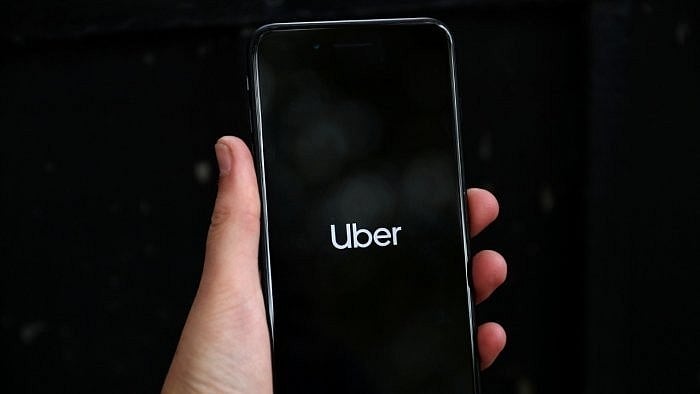
Representative image of Uber app in phone.
Credit: Reuters File Photo
Bengaluru: Uber’s latest policy change, reducing its role to a mere facilitator between drivers and passengers, has sparked intense debate.
Two weeks ago, the ride-hailing giant announced it would no longer regulate fares or intervene in fare disputes, leaving pricing entirely in the hands of drivers. Payments will now be cash-only, and fares will serve as suggestions rather than fixed amounts.
"Uber is making a major shift with its new Auto model, moving towards a Software-as-a-Service approach,” the company stated in an official post on X.
While many drivers have welcomed the move as long overdue, commuters are voicing concerns over potential fare exploitation and lack of accountability.
A quick survey by DH reporters among Bengaluru’s autorickshaw drivers revealed that only a small percentage actively used Uber in the past, frustrated by fixed fares and high commission cuts.
With Uber stepping away from price control, drivers see an opportunity to charge fares based on demand, distance, and traffic conditions.
"Earlier, if we took a shortcut to help passengers reach faster, Uber penalised us by cutting a portion of our earnings just because we didn’t follow the algorithm’s suggested route,” said Ramesh, an auto driver from VV Puram who has been using ride-hailing apps for over four years. "Now, we finally have the freedom to take the best route without being punished."
Another driver in Koramangala added, "Other ride-booking apps charge extra during peak hours, but Uber didn’t account for Bengaluru's traffic. We would waste fuel crawling through jams, but couldn’t charge more. Now, we have some control over our fares."
However, commuters fear inconsistent pricing, especially during peak hours or in areas with limited transport options.
"It is already tough to get a ride during rush hours. Now, if drivers can charge whatever they want, what’s stopping them from hiking fares unfairly?” asked Sreeja, a daily commute between Banaswadi and Koramangala.
“At least before, we knew the fare upfront. Now, we have no idea how much a ride will cost until we negotiate with the driver," another commuter said.